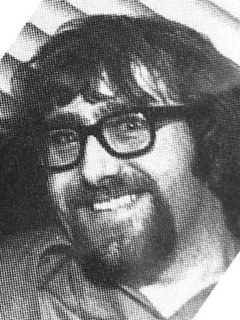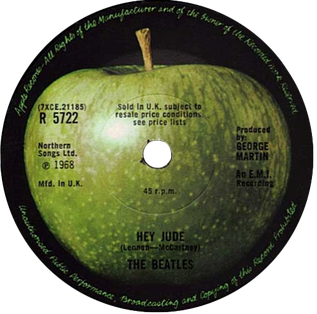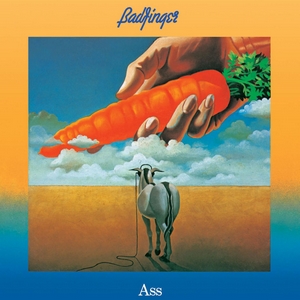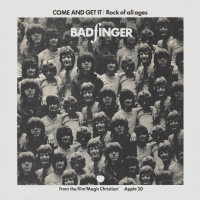Related Research Articles

The Beatles, also known as the White Album, is the ninth studio album and only double album by the English rock band the Beatles, released on 22 November 1968. Its plain white sleeve contains no graphics or text other than the band's name embossed, which was intended as a direct contrast to the vivid cover artwork of the band's previous LP Sgt. Pepper's Lonely Hearts Club Band. The Beatles is recognised for its fragmentary style and diverse range of genres, including folk, British blues, ska, music hall and the avant-garde. It has since been viewed by some critics as a postmodern work, as well as among the greatest albums of all time.

Malcolm Frederick Evans was an English roadie and personal assistant employed to the Beatles from 1963 until their break-up in 1970.

Let It Be is the twelfth and final studio album by the English rock band the Beatles. It was released on 8 May 1970, almost a month after the group's break-up, in tandem with the motion picture of the same name. Like most of the band's previous releases, the album topped record charts in many countries, including both the US and the UK. However, the critical response was generally unfavourable, and Let It Be came to be regarded as one of the most controversial rock albums in history.

Geoffrey Ernest Emerick was an English sound engineer and record producer who worked with the Beatles on their albums Revolver (1966), Sgt. Pepper's Lonely Hearts Club Band (1967) and Abbey Road (1969). Beatles producer George Martin credited him with bringing "a new kind of mind to the recordings, always suggesting sonic ideas, different kinds of reverb, what we could do with the voices".

"With a Little Help from My Friends" is a song by the English rock band the Beatles from their 1967 album Sgt. Pepper's Lonely Hearts Club Band. It was written by John Lennon and Paul McCartney and sung by drummer Ringo Starr, his lead vocal for the album. As the second track on the album, it segues from the applause of the title track.

Template:Use British Welsh

"Hey Jude" is a song by the English rock band the Beatles that was released as a non-album single in August 1968. It was written by Paul McCartney and credited to the Lennon–McCartney partnership. The single was the Beatles' first release on their Apple record label and one of the "First Four" singles by Apple's roster of artists, marking the label's public launch. "Hey Jude" was a number-one hit in many countries around the world and became the year's top-selling single in the UK, the US, Australia and Canada. Its nine-week run at number one on the Billboard Hot 100 tied the all-time record in 1968 for the longest run at the top of the US charts. It has sold approximately eight million copies and is frequently included on music critics' lists of the greatest songs of all time.
Apple Records is a record label founded by the Beatles in 1968 as a division of Apple Corps Ltd. It was initially intended as a creative outlet for the Beatles, both as a group and individually, plus a selection of other artists including Mary Hopkin, James Taylor, Badfinger, and Billy Preston. In practice, the roster had become dominated by the mid-1970s with releases of the former Beatles as solo artists. Allen Klein managed the label from 1969 to 1973, then it was managed by Neil Aspinall on behalf of the Beatles and their heirs. Aspinall retired in 2007 and was replaced by Jeff Jones.

No Dice is the third studio album by British rock band Badfinger, issued by Apple Records and released on 9 November 1970. Their second album under the Badfinger name and first to include guitarist Joey Molland, No Dice significantly expanded the British group's popularity, especially abroad. The album included both the hit single "No Matter What" and the song "Without You", which would become a big hit for Harry Nilsson, and later a hit for Mariah Carey.

Straight Up is the fourth studio album by British rock band Badfinger, released in December 1971 in the United States and February 1972 in Britain. Issued on the Beatles' Apple record label, it includes the hit singles "Day After Day" and "Baby Blue", and the similarly popular "Name of the Game", all of which were written by singer and guitarist Pete Ham. The album marked a departure from the more rock-oriented sound of Badfinger's previous releases, partly as a result of intervention by Apple Records regarding the band's musical direction. Although Straight Up received a mixed response from critics on release, many reviewers now regard it as the band's best album. Rolling Stone critic David Fricke has referred to it as "Badfinger's power-pop apex".

Apple Corps Limited is a multi-armed multimedia corporation founded in London in January 1968 by the members of the Beatles to replace their earlier company and to form a conglomerate. Its name is a pun. Its chief division is Apple Records, which was launched in the same year. Other divisions included Apple Electronics, Apple Films, Apple Publishing and Apple Retail, whose most notable venture was the short-lived Apple Boutique, on the corner of Baker Street and Paddington Street in central London. Apple's headquarters in the late 1960s was at the upper floors of 94 Baker Street, after that at 95 Wigmore Street, and subsequently at 3 Savile Row. The latter address was also known as the Apple Building, which was home to the Apple Studio.

Abbey Road is the eleventh studio album by the English rock band the Beatles, released on 26 September 1969 by Apple Records. Named after the location of EMI Studios in London, the cover features the group walking across the street's zebra crossing, an image that became one of the most famous and imitated in popular music. The album's initially mixed reviews were contrasted by its immediate commercial success, topping record charts in the UK and US. The lead single "Something" / "Come Together" was released in October and topped the US charts.

Ass is the fifth studio album by British rock band Badfinger, and their last album released on Apple Records. The opening track, "Apple of My Eye", refers to the band leaving the label to begin its new contract with Warner Bros. Records.

Joseph Charles Molland is an English composer and rock guitarist whose recording career spans five decades. He is best known as a member of Badfinger, the most successful of the acts he performed with. Molland is the last surviving member from the band's classic line-up. He lives in Minneapolis, Minnesota.

"Come and Get It" is a song composed by English singer-songwriter Paul McCartney for the 1969 film The Magic Christian. The song was performed by Badfinger, produced by McCartney and issued as a single 5 December 1969 in the UK, and 12 January 1970 in the US, on the Beatles' Apple label. It was the band's first release under the Badfinger name and was their international breakthrough, hitting the top 10 in both the UK and US singles charts.

Head First is the tenth and final studio album to be released by British rock band Badfinger, released on 14 November 2000, but recorded 26 years earlier in December 1974–January 1975, at the Beatles' Apple Studios in London, although it was not released at the time. Originally intended to be Badfinger's eighth album (WB), the recordings were shelved when legal difficulties erupted between the band and WB that year, and the version that was finally released was a rough mix of the album made in 1975 by Phil McDonald, one of the recording engineers at Apple Studios.

"Wah-Wah" is a song by English musician George Harrison, released on his 1970 triple album All Things Must Pass. Harrison wrote the song following his temporary departure from the Beatles in January 1969, during the troubled Get Back sessions that resulted in their Let It Be album and film. The lyrics reflect his frustration with the atmosphere in the group at that time – namely, Paul McCartney's over-assertiveness and criticism of his guitar playing, John Lennon's lack of engagement with the project and dismissal of Harrison as a songwriter, and Yoko Ono's constant involvement in the band's activities. Music critics and biographers recognise the song as Harrison's statement of personal and artistic freedom from the Beatles. Its creation contrasted sharply with his rewarding collaborations outside the group in the months before the Get Back project, particularly with Bob Dylan and the Band in upstate New York.
Lon & Derrek Van Eaton were an American vocal and multi-instrumentalist duo from Trenton, New Jersey, consisting of brothers Lon and Derrek Van Eaton. They are best known for their association with the Beatles through the brothers' brief stint on Apple Records, and for their subsequent session work in Los Angeles for producer Richard Perry. As well as recording their own albums, during the 1970s they appeared on releases by artists including George Harrison, Ringo Starr, Harry Nilsson, Carly Simon, Martha Reeves and Art Garfunkel. Beatles biographer Robert Rodriguez describes the Van Eaton brothers as arguably the closest the Apple record label came to delivering on its initial promise of "plucking unknowns from obscurity" and launching them as successful recording artists.

The Place I Love is the debut album by English vocal duo Splinter, released on Dark Horse Records in September 1974. It was the first album released by the Dark Horse label, which was owned by George Harrison, who also produced the album. Recording sessions took place at Harrison's Friar Park home studio in Oxfordshire and featured extensive musical contributions from Harrison, on guitar, keyboards and other instruments, as well as participants such as Gary Wright, Billy Preston, Jim Keltner and Alvin Lee. "Costafine Town", the first single from the album, was a top-twenty hit in the United Kingdom and other countries.

Brother is the debut album by the American pop-rock duo Lon & Derrek Van Eaton. It was released on the Beatles' Apple record label in September 1972 in the United States and February 1973 in Britain. It includes the single "Sweet Music", produced by George Harrison, and was otherwise produced by Klaus Voormann, a friend and longtime associate of the Beatles. On release, the album received favorable reviews from music critics but failed to achieve commercial success. Rolling Stone critic Stephen Holden hailed it as a "staggeringly impressive first album".